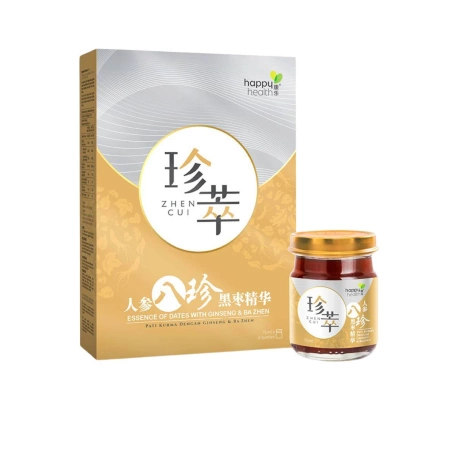Not everyone can drink it I You need to know the 3 taboos of BaZhen Soup/ Ba Zhen Tang

Bazhen Soup, a renowned tonic in traditional Chinese medicine (TCM), holds a significant place in Chinese culture as a nourishing elixir for health and vitality. Its rich history dates back centuries, and today, it continues to be cherished for its potential health benefits. This article delves into the traditional uses, ingredients, taboos, correct usage guidelines, alternative solutions, integration with modern medicine, and FAQs surrounding Bazhen Soup, providing a comprehensive understanding of its role in both traditional and contemporary healthcare practices.
Traditional Uses of Bazhen Soup
Historically, Bazhen Soup has been revered for its ability to tonify the body and address various health concerns. In ancient China, it was commonly prescribed to individuals experiencing symptoms of qi and blood deficiency, such as anemia, fatigue, and weakness. The traditional uses of Bazhen Soup encompass:
Blood and Qi Tonification
Ingredients like Angelica sinensis and prepared Rehmannia root are known for their blood-nourishing and qi-tonifying properties, making Bazhen Soup an effective remedy for conditions like anemia.
Yin and Blood Nourishment
Herbs such as dried longan and red dates possess nourishing properties that replenish yin and blood, making Bazhen Soup suitable for individuals with yin deficiency and related symptoms like insomnia.
Qi and Blood Regulation
Bazhen Soup contains herbs like Ligusticum wallichii and white peony root, which help regulate the flow of qi and blood in the body, promoting overall health and balance.
Ingredients and Effects of Bazhen Soup
The medicinal composition of Bazhen Tang is rich and diverse, but it is usually made from the following eight medicinal materials. Each medicinal material has its own unique effects and functions
Angelica sinensis
Known as the "female ginseng," it regulates menstruation and nourishes blood.
Prepared Rehmannia root
Nourishes yin, replenishes the kidneys, and nourishes blood.
Ligusticum wallichii
Promotes blood circulation and regulates menstruation.
White peony root
Nourishes blood, calms the liver, and regulates the spleen.
Dried longan
Benefits the spleen and stomach, nourishes blood, and calms the mind.
Red dates
Nourish qi, blood, and the spleen, serving as a common tonic.
Dried lychee
Nourishes the heart, benefits the spleen, nourishes blood, and replenishes qi.
Achyranthes bidentata
Invigorates blood circulation and strengthens tendons and bones.
Three Major Taboos of Bazhen Soup
Despite its therapeutic potential, Bazhen Soup may not be suitable for everyone, and there are specific situations where its consumption should be avoided:
Hot Constitution
Individuals with a hot constitution or excessive internal heat may experience exacerbation of symptoms such as dryness and inflammation upon consuming Bazhen Soup.
During Colds or Fever
The inflammatory nature of illnesses like colds and fever contraindicates the use of tonics like Bazhen Soup, as they may worsen the condition.
Pregnancy
Due to the presence of certain herbs that may affect fetal development, pregnant women are advised to use Bazhen Soup cautiously under medical supervision.
Guidelines for Correct Use of Bazhen Soup
To maximize the benefits of Bazhen Soup while minimizing risks, adherence to the following guidelines is essential:
Use under Appropriate Circumstances
Bazhen Soup should be used in suitable conditions and dosages as prescribed by a qualified TCM practitioner.
Individualized Treatment
Consideration of individual constitution and health status is crucial, and adjustments to the formula should be made accordingly.
Professional Guidance
Seek guidance from a licensed TCM practitioner to ensure safe and effective use of Bazhen Soup.
Alternative Solutions and Adjustments:
In cases where Bazhen Soup is unsuitable or contraindicated, alternative TCM formulations or dietary adjustments can be considered:
Alternative Formulations
Soups such as Siwu Soup or Guishaotang may offer similar benefits and can be used as substitutes for Bazhen Soup.
Formula Adjustments
Individual ingredients in Bazhen Soup can be modified or omitted based on the patient's condition, ensuring a personalized approach to treatment.
Integration of Bazhen Soup with Modern Medicine
Incorporating Bazhen Soup into modern healthcare practices involves synergizing TCM principles with contemporary medical approaches:
Collaborative Treatment
Collaboration between TCM practitioners and Western healthcare professionals can optimize treatment outcomes by integrating the strengths of both systems.
Evidence-Based Practice
Emphasis on evidence-based research and clinical trials can provide scientific validation for the efficacy of Bazhen Soup and enhance its acceptance within the medical community.
FAQs:
Can Bazhen Soup be taken for a long time?
Long-term use should be supervised by a healthcare professional to monitor for adverse reactions.
Will Bazhen Soup interact with other medications?
Caution should be exercised when combining Bazhen Soup with other medications to avoid potential interactions.
Is there an age limit for taking Bazhen Soup?
While age may influence dosage and suitability, individualized assessment by a healthcare provider is recommended.
Potential Health Benefits of Bazhen Soup
Beyond its traditional uses and therapeutic effects, Bazhen Soup has garnered attention for its potential health benefits supported by scientific research. Studies have highlighted its antioxidant, anti-inflammatory, and immunomodulatory properties, suggesting a broader spectrum of applications beyond its traditional uses. Research indicates that the combination of herbs in Bazhen Soup may exert synergistic effects, enhancing its overall efficacy in promoting health and well-being.
Clinical Applications of Bazhen Soup in Modern Healthcare
In modern healthcare settings, Bazhen Soup finds applications in various clinical scenarios, ranging from chronic diseases to post-surgical recovery. Integrative medical centers and TCM clinics often incorporate Bazhen Soup into treatment protocols for conditions such as chronic fatigue syndrome, anemia, and immune dysfunction. Its ability to replenish vital substances, regulate physiological functions, and support recovery processes makes it a valuable adjunct to conventional therapies.
Evidence-Based Research and Future Directions
As interest in traditional medicine grows worldwide, there is a need for further research to validate the efficacy and safety of Bazhen Soup through rigorous clinical trials and systematic reviews. Collaborative efforts between researchers, healthcare providers, and pharmaceutical companies can facilitate the development of standardized formulations and dosage guidelines, enhancing its accessibility and acceptance within mainstream healthcare systems. Future studies may also explore the mechanisms of action underlying the therapeutic effects of Bazhen Soup, shedding light on its potential role in preventing and managing a wide range of health conditions.
Cultural Significance and Preservation Efforts
Bazhen Soup not only serves as a medicinal remedy but also embodies cultural heritage and collective wisdom passed down through generations. Efforts to preserve traditional knowledge and practices surrounding Bazhen Soup are essential for safeguarding cultural identity and promoting intergenerational transmission of healing traditions. Cultural events, educational programs, and community initiatives play a vital role in raising awareness about the cultural significance of Bazhen Soup and preserving its legacy for future generations.
Consumer Education and Empowerment
Empowering consumers with knowledge about Bazhen Soup empowers them to make informed decisions about their health and well-being. Educational initiatives aimed at raising awareness about the benefits, proper usage, and precautions associated with Bazhen Soup can enhance health literacy and promote responsible self-care practices. Integrating traditional medicine education into healthcare curricula and public health initiatives can foster greater appreciation for the cultural and therapeutic value of Bazhen Soup in diverse populations.
Conclusion
Bazhen Soup represents a remarkable fusion of ancient wisdom and modern insights, embodying the rich tapestry of Chinese medicinal traditions. Its traditional uses, therapeutic ingredients, and cultural significance underscore its enduring relevance in contemporary healthcare practices. As ongoing scientific research sheds light on its mechanisms of action and clinical applications, Bazhen Soup emerges as a valuable asset in the integrative healthcare landscape.
By embracing its cultural heritage, fostering evidence-based research, and promoting consumer education, Bazhen Soup has the potential to enrich lives and contribute to the global dialogue on health and healing. Empowering individuals with knowledge about its traditional uses, correct usage guidelines, and alternative solutions enables informed decision-making regarding its incorporation into health regimens. Through a balanced approach that respects both tradition and modernity, Bazhen Soup continues to serve as a beacon of holistic health and well-being, bridging ancient wisdom with contemporary healthcare practices.

 Bahasa melayu
Bahasa melayu 中文
中文


























